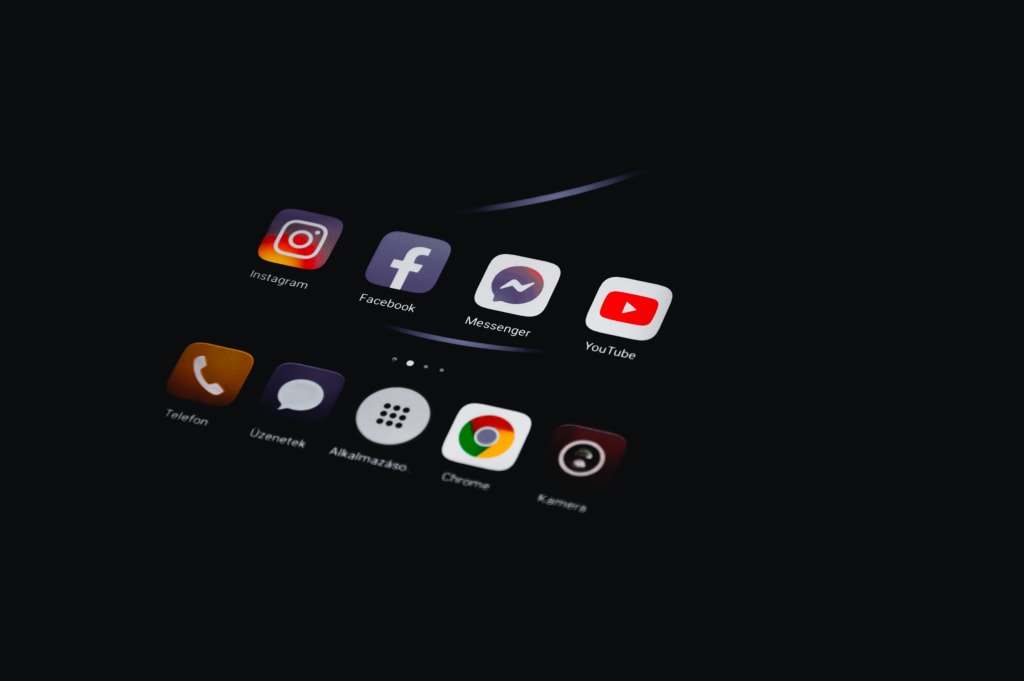Social Media: Impact on human behaviour and society
Social Media

Social Media: Impact on human behaviour and society
Social media has revolutionized the way we interact with one another and has become a ubiquitous part of our daily lives. While social media platforms offer many benefits, including increased connectivity and access to information, they also have a significant impact on human behaviour and society. In this article, we will explore the ways in which social media affects our behaviour and society as a whole.
1. Social Comparison: One of the most significant impacts of social media on human behaviour is the phenomenon of social comparison. Social media allows users to see the highlight reels of other people's lives, including their accomplishments, relationships, and experiences. This constant exposure can lead to feelings of inadequacy and low self-esteem, as users compare themselves to others.
2. Cyberbullying: Cyberbullying is a form of online harassment that can have serious negative effects on mental health. Social media platforms provide a platform for cyberbullying, with users being able to anonymously attack others or spread rumours and hate speech. Cyberbullying has been linked to depression, anxiety, and even suicide in extreme cases.
3. Addiction: Social media can be highly addictive, with users spending hours scrolling through feeds, checking notifications, and engaging with others. This addiction can have negative impacts on mental health, including increased anxiety and depression, as well as physical health, as excessive use can lead to sleep deprivation and decreased physical activity.
4. Echo Chambers: Social media can create echo chambers, where users are exposed only to information that confirms their existing beliefs and biases. This can lead to a polarization of viewpoints, where people become more entrenched in their beliefs and less willing to consider alternative perspectives. This polarization can be harmful to society, as it can lead to increased division and hostility.
5. Disinformation: Social media platforms can be used to spread false information, including rumours, conspiracy theories, and propaganda. This disinformation can have serious consequences, including the spread of misinformation about health and safety, political elections, and more. Social media platforms have taken steps to combat disinformation, but the problem remains a significant issue.
6. Privacy Concerns: Social media platforms collect vast amounts of personal data about users, including their interests, behaviours, and demographics. This data can be used for targeted advertising, but it can also be used for more nefarious purposes, such as identity theft and fraud. Concerns about privacy have led some users to delete their social media accounts or limit their use of these platforms.
7. Online Communities: Social media has also created online communities where users can connect with others who share similar interests and identities. These communities can provide support, education, and a sense of belonging, particularly for individuals who may feel isolated in their offline lives. However, online communities can also perpetuate harmful stereotypes and contribute to the polarization of society.
8. Impacts on Relationships: Social media has changed the way we form and maintain relationships, with users being able to connect with people from around the world and share their lives in real-time. However, social media can also put a strain on existing relationships, particularly romantic relationships, as partners may feel jealous or insecure about the attention their significant other receives online. Additionally, social media can create a false sense of intimacy, where users feel they know someone well based solely on their online presence.
9. Influencer Culture: Social media has given rise to influencer culture, where individuals with large followings on social media platforms are able to monetize their popularity through sponsorships and brand deals. This culture can perpetuate unrealistic beauty standards and consumerism, with users feeling pressured to buy products and emulate the lifestyles of influencers.
10. Impact on Political Discourse: Social media has transformed the way we consume and engage with political information. Platforms like Twitter and Facebook have become important sources of news and opinion, and they have also created a space.
As mentioned, social media has transformed the way we consume and engage with political information. While social media has the potential to increase political engagement and activism, it can also contribute to the polarization of political discourse. Echo chambers, disinformation, and algorithmic bias can all contribute to the spread of extreme political views and the suppression of moderate voices.
One way in which social media has impacted political discourse is by allowing for the rapid spread of misinformation and propaganda. This has been particularly evident in recent political elections, where false information has been shared widely on social media platforms. This disinformation can have serious consequences, including voter suppression and the erosion of trust in democratic institutions.
Another way in which social media has impacted political discourse is by creating echo chambers. Social media algorithms are designed to show users content that is most likely to keep them engaged, and this can lead to the creation of filter bubbles, where users are only exposed to information that confirms their existing beliefs. This can make it difficult for individuals to engage in meaningful political discourse with those who hold different views.
Social media has also played a role in the rise of extremist political movements, particularly on the far-right. Social media platforms have allowed extremist groups to connect with one another, spread their message, and recruit new members. The anonymity of social media can also make it easier for individuals to engage in hate speech and other forms of online harassment.
Finally, social media has transformed the way political campaigns are run. Political candidates now rely heavily on social media platforms to reach voters, raise funds, and mobilise supporters. Social media has also made it easier for individuals to engage in political activism, with campaigns like #MeToo and #BlackLivesMatter gaining traction on social media platforms.
In conclusion, social media has had a significant impact on human behaviour and society, both positive and negative. While social media has increased connectivity and access to information, it has also led to social comparison, cyberbullying, addiction, echo chambers, disinformation, privacy concerns, online communities, impacts on relationships, influencer culture, and impacts on political discourse. As social media continues to evolve, it is important to consider its impact on our lives and society, and to take steps to mitigate its negative effects.






Comments
There are no comments for this story
Be the first to respond and start the conversation.